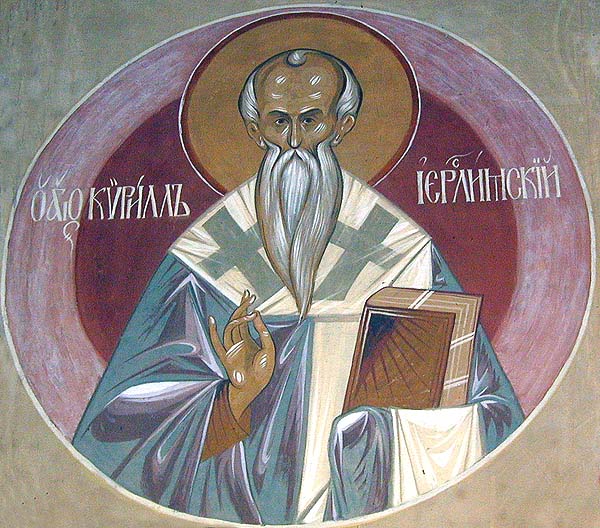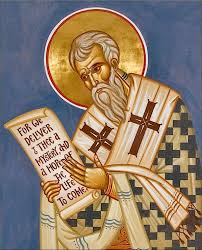
Catholic Saints
Saint Cyril of Jerusalem, born around 315 AD near Jerusalem, was a pivotal 4th-century bishop and Doctor of the Church. Appointed Bishop of Jerusalem around 350 AD, he is best known for his Catechetical Lectures, which instructed converts in the faith. Despite facing exile multiple times due to Arian conflicts, Cyril staunchly defended Nicene orthodoxy. He died in 386 AD, and his feast day is celebrated on March 18.
His feast day is celebrated on March 18.
Doctor of the Church
Born around 315 AD near Jerusalem, Cyril emerged as a key figure in early Christian catechesis and theology.
Cyril was likely born into a Christian family in or near Jerusalem, a city central to the faith. Little is known of his early years, but his education in Scripture and theology prepared him for a life of service.
Ordained a priest around 345 AD by Bishop Maximus of Jerusalem, Cyril began instructing catechumens—converts preparing for baptism—laying the groundwork for his later fame.
Cyril’s deep connection to Jerusalem shaped his ministry and writings, tying him to the holy sites of Christ’s life.
Cyril became Bishop of Jerusalem around 350 AD, succeeding Maximus. His episcopate was marked by turmoil, including three exiles totaling about 14 years (357-359, 360-361, 367-378) due to Arian opposition. Despite this, he delivered his renowned Catechetical Lectures, 23 sermons guiding catechumens and the newly baptized.
He also oversaw pilgrims visiting Jerusalem’s holy sites, emphasizing their spiritual significance in his teachings.
Cyril’s leadership blended pastoral care with a commitment to teaching the faith amidst adversity.
Cyril staunchly defended the Nicene Creed against Arianism, which denied Christ’s full divinity. His exiles—under emperors Constantius II and Valens—stemmed from conflicts with Arian bishops like Acacius of Caesarea. His Catechetical Lectures affirm orthodox Trinitarian doctrine, earning him posthumous recognition as a Doctor of the Church in 1883.
Cyril’s resilience preserved the Church’s unity during a time of theological division.
Cyril died in 386 AD after returning from his final exile in 378 AD. His Catechetical Lectures remain a cornerstone of Christian education, offering insights into 4th-century liturgy and doctrine. Celebrated on March 18, his legacy endures as a teacher of the faith.
Known for his clarity and devotion, Cyril inspires Christians to deepen their understanding of the mysteries of salvation.
Cyril’s steadfastness and catechetical zeal continue to resonate across centuries.
“The Spirit comes gently and makes Himself known by His fragrance.”
Born near Jerusalem.
Born into a Christian family, Cyril was educated in Scripture and theology.
Began instructing catechumens under Bishop Maximus.
Ordained a priest.
Became Bishop of Jerusalem.
Delivered his famous Catechetical Lectures.
Faced three exiles due to Arian conflicts.
Exiled three times, totaling about 14 years.
Died in Jerusalem.
Left a lasting impact as a Doctor of the Church.

“The dragon sits by the side of the road, watching those who pass. Beware lest he devour you. We go to the Father of Souls, but it is necessary to pass by the dragon.”
Saint Cyril of Jerusalem Quotes
“Make your fold with the sheep; flee from the wolves: depart not from the Church.”
“The Holy Spirit is the seal of the baptized, marking them for the day of redemption.”
“Let us not then be ashamed to confess the Crucified. Be the Cross our seal made with boldness.”
“The bread and wine after the invocation are no longer mere bread and wine, but the Body and Blood of Christ.”
“For as Christ was in truth crucified, and buried, and raised, so in the mysteries you are accounted worthy of being crucified, buried, and raised together with Him.”
“The Father bears witness from heaven to His Son. The Holy Spirit bears witness, coming down in the form of a dove. The Church bears witness, proclaiming the truth.”